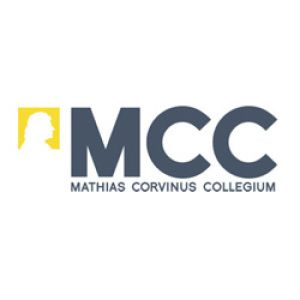
Brexit: in or out?
On 15th February the Mathias Corvinus Collegium hosted a panel discussion about ’Brexit’, the initiative for Britain to leave the European Union, about which a referendum is to be held next year.
The debate was moderated by Nick Thorpe, Central Europe Correspondent for BBC, who first asked the participants whether they themselves want to see Britain in or out. Professor Malcolm Gillies, who has held top executive positions at multiple British universities, argued that Britain should stay in the Union, because it represents European values and if there are issues, the institutional framework should be changed from inside. Brendan Donnelly, a former member of the European Parliament, who quit the Conservative Party because of its eurosceptic sentiment, also expressed the importance of European values and condemned the hostility of certain Conservative leaders to the EU. John O’Sullivan, Conservative political commentator and President of the Danube Institute in Budapest, however, said that the United Kingdom would be better off out, for the people of the Isles have always wished for self-governance. Mr O’Sullivan, who also served as a speech writer for Margaret Thatcher, also elaborated on how the Iron Lady would vote if she still lived today. Regarding the possible consequences of the UK’s withdrawal from the European Union, Mr Donnelly warned that it would set a dangerous precedent which would destabilise the old continent, while Mr Gillies expressed his support for European values, for they are more important to him than the uniqueness of the British culture. When a member of the audience – in which there were many university students – asked about the economic implications of the split, Mr O’Sullivan pointed out that the UK, as the fifth-largest economy worldwide, would be able to survive on its own. But there were also aspects on which the three experts agreed: these included the view that the American presence in Europe is vital to the stability of the continent and that the EU is inefficient in its current form. Finally, Mr Thorpe asked the audience if they want to see Britain in the EU. ’Yes’ won an overwhelming but not unanimous majority, since even the two of us voted differently.
Richárd Palkó, Kaposvár 2, Budapesti Corvinus University
Gergely Szabó, Pécs 1, International Business School (IBS)


